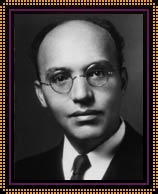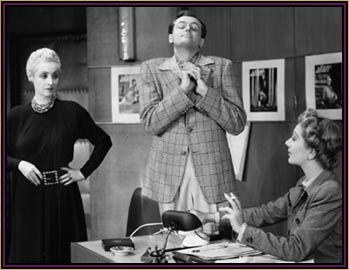 A distinguished composer, often for the musical theater, Weill studied piano and composition as a child, and at the age of 20 was conducting opera with local companies. By the mid-’20s he had established a reputation as a leading composer in the modern idiom. He was eager to make opera a popular form, accessible to the widest audience, and was also politically aware, wanting his work to have social significance. In collaboration with Bertolt Brecht he composed “Little Mahagonny” (later expanded to become “The Rise and Fall of the City of Mahagonny”) and then achieved success with “The Threepenny Opera” (1928). Although a massive hit in Germany, the show failed in the USA in 1933, but was well received when it was revived in 1954-55. It has since been continually restaged all over the world. The show’s best-known song, “Mack the Knife,” became a standard in the repertoires of numerous singers. Weill and his wife, singer Lotte Lenya, emigrated to the USA in 1935. En route, he spent some time in England, working with Desmond Carter and Reginald Arkell on the musical satire, “A Kingdom for a Cow,” which was presented at the Savoy Theatre.
A distinguished composer, often for the musical theater, Weill studied piano and composition as a child, and at the age of 20 was conducting opera with local companies. By the mid-’20s he had established a reputation as a leading composer in the modern idiom. He was eager to make opera a popular form, accessible to the widest audience, and was also politically aware, wanting his work to have social significance. In collaboration with Bertolt Brecht he composed “Little Mahagonny” (later expanded to become “The Rise and Fall of the City of Mahagonny”) and then achieved success with “The Threepenny Opera” (1928). Although a massive hit in Germany, the show failed in the USA in 1933, but was well received when it was revived in 1954-55. It has since been continually restaged all over the world. The show’s best-known song, “Mack the Knife,” became a standard in the repertoires of numerous singers. Weill and his wife, singer Lotte Lenya, emigrated to the USA in 1935. En route, he spent some time in England, working with Desmond Carter and Reginald Arkell on the musical satire, “A Kingdom for a Cow,” which was presented at the Savoy Theatre.

Gertrude Lawrence in "Lady in the Dark."
On arriving in the USA, he formed a working association with Group Theater, the influential left-wing drama company that was home to such rising talents as Lee J. Cobb, John Garfield, Clifford Odet, Frances Farmer, and Elia Kazan. He also wrote scores for the theater, including “Johnny Johnson” (1936, with Paul Green), “The Eternal Road” (1937, Franz Werfel), and “Knickerbocker Holiday” (1938, with Maxwell Anderson). The last show starred the nonsinging actor Walter Huston, but ironically his version of “September Song” proved to one of the most memorable and enduring moments in popular music. In 1941 Weill collaborated with Ira Gershwin (lyrics) and Moss Hart (book) for “Lady in the Dark,” which starred Gertrude Lawrence, and featured “My Ship,” “The Saga of Jenny,” and “One Life to Live.” Two years later came “One Touch of Venus” (Ogden Nash and S.J. Perelman), in which the lovely “Speak Low” was introduced by Mary Martin and Kenny Baker. This was followed by “The Firebrand of Florence” (1945, Ira Gershwin and Edwin Justus Mayer), “Street Scene” (1947, Langston Hughes and Elmer Rice), “Down in the Valley” (1948, a 20-minute folk opera for radio), “Love Life” (1948, Alan Jay Lerner), and “Lost in the Stars” (1949, Anderson).
Kurt Weill
- "Happy End"
- "Lady in the Dark"
- "Lost in the Stars"
- "One Touch of Venus"
- "Street Scene"
- Ira Gershwin
- Moss Hart
- Mary Martin
Weill was working on “Huckleberry Finn,” an adaptation of Mark Twain’s celebrated novel, when he died in 1950. In 1995, a new production of “The Rise and Fall of the City of Mahagonny” was presented by the English National Opera at the Coliseum in London. In the following year Weill and Lerner’s 1948 “Love Life” received its “first production outside the USA for 48 years.” The show’s European premiere took place at the Grand Theatre Leeds. In 1999, Weill’s “Der Silbersee” (The Silverlake) was presented by the Broomhill Opera at the new refurbished Wilton’s Music Hall in London in a translation by the popular UK impressionist Rory Bremner. Also in 1999, the opera “He Who Says Yes/He Who Says No,” by Weill and Brecht, was presented Off-Off Broadway.
FURTHER READING:
THE DAYS GROW SHORT: THE LIFE AND MUSIC OF KURT WEILL, Ronald Saunders.
KURT WEILL: COMPOSER IN A DIVIDED WORLD, Ronald Taylor.
SPEAK LOW (WHEN YOU SPEAK LOVE): THE LETTERS OF KURT WEILL AND LOTTE LENYA, Lys Symonette and Kim Kowalke, eds.
Source: Biographical information provided by MUZE. Excerpted from the ENCYCLOPEDIA OF POPULAR MUSIC, edited by Colin Larkin. © 2004 MUZE UK Ltd.
Photo credits: Photofest

